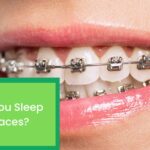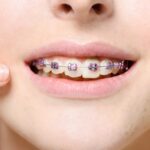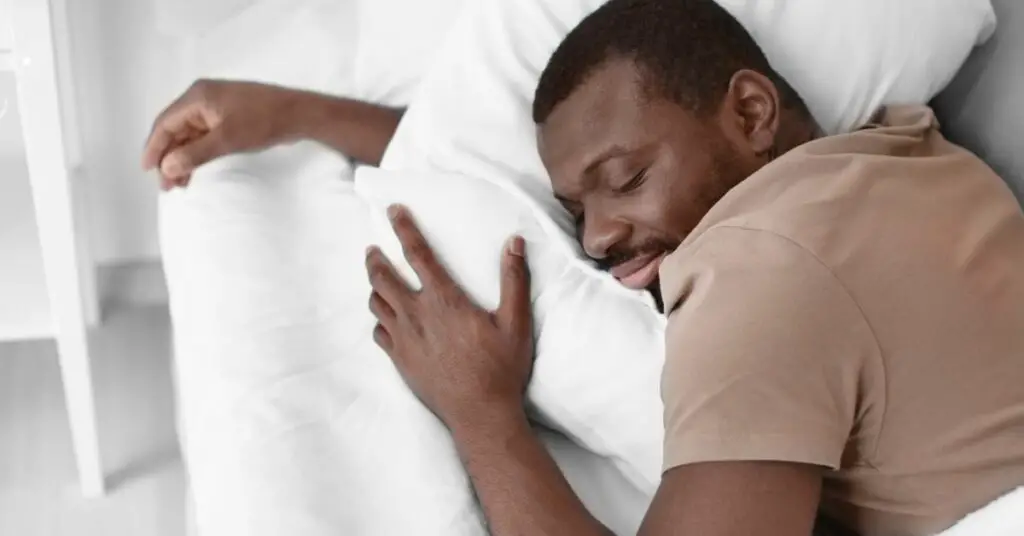Braces are designed to give you the best possible comfort when wearing them.
When it comes to sleeping, a pillow is made of a soft, comfortable material that will contour to your head and neck, providing support and preventing pain.
However, will you be able to sleep on your side with braces?
The truth is that braces usually don’t bother people when they are sleeping on their side.
However, most people find that sleeping on their back helps to reduce pain and protect their teeth and appliances from shifting around, but ultimately, it is up to you what feels most comfortable.
In this article, we will discuss further sleeping with braces and how to make it more comfortable for you.
Why do People Wear Braces?
There are a variety of reasons why people wear braces. Some people need them for medical reasons, while others simply want to improve the way their teeth look.
The most common reason for wearing braces is to correct dental problems such as crooked or crowded teeth or a misaligned bite.
By straightening your teeth, braces can help improve your overall oral health. They make it easier to brush and floss properly and can even help reduce the risk of cavities and gum disease.
Even if you don’t have any major dental problems, you might still want to wear braces for cosmetic reasons. A straighter, more evenly spaced smile can boost your confidence and make you feel better about yourself. And with today’s clear braces and other invisibility options, it’s easier than ever to get the look you want.
How Do Braces Work?
Braces work by slowly moving your teeth into the correct position. They do this by putting gentle pressure on your teeth and jaws.
The type of braces you wear will determine how long it takes to straighten your teeth. Metal braces are the most common type, and they usually take about one to three years to work.
Invisalign® clear aligners are another popular option, and they can take anywhere from six months to a year or more to straighten your teeth.
Whatever type of braces you choose, you’ll need to visit your orthodontist for regular check-ups so they can adjust your braces and make sure your treatment is progressing as planned.
Sleep With Braces
Wondering how to sleep with braces? You’re not alone. Many people who wear braces have difficulty sleeping simply because they’re not used to having something on their teeth. However, there are a few things you can do to make sleeping with braces easier.
First, try using a pillow to prop up your head so that your mouth is higher than your stomach. This will help keep acid from coming up and damaging your teeth. You can also try sleeping on your back, which will also reduce the amount of contact between your braces and your pillow.
Second, invest in a good orthodontic pillow. These pillows are specifically designed to support your head and neck while you sleep, and they can really make a difference in how comfortable you are.
Finally, if you’re still having trouble sleeping with braces, talk to your orthodontist about getting a removable retainer. This way, you can take your braces off before you go to bed and put them back on in the morning.
Sleeping with braces doesn’t have to be difficult. Just follow these tips, and you’ll be able to get a good night’s sleep in no time.
What to do if You Experience Pain While Sleeping With Braces?
If you experience pain while sleeping with braces, there are a few things you can do to ease the discomfort.
You can take over-the-counter pain relievers, adjust your braces yourself or visit your orthodontist for an adjustment. You can also try sleeping with a pillow to support your head and neck.
If your braces are causing irritation, you can wear a mouthguard to protect your mouth. Remember to practice good oral hygiene and to see your orthodontist for regular check-ups.
Tips For Staying Comfortable While Wearing Braces at Night
Most people find that they can sleep comfortably on their sides or on their back with braces. However, some people may experience discomfort when sleeping on their stomachs.
There are a few things you can do to stay comfortable while wearing braces at night.
1. Use a pillow. A pillow can help support your head and neck and prevent your teeth from shifting around.
2. Wear a mouthguard. If you find that your braces are rubbing against your cheeks or lips.
3. Adjust your braces. If your braces are causing discomfort, you can try adjusting them yourself or visiting your orthodontist for an adjustment.
4. Take pain relievers. If you’re in pain, over-the-counter pain relievers can help. Just be sure to follow the instructions on the package.
5. Practice good oral hygiene. It’s important to brush and floss regularly when you have braces to prevent cavities and gum disease.
Sleeping with braces is usually not a problem, but if you’re having trouble, there are a few things you can do to make it more comfortable. Remember to practice good oral hygiene and to see your orthodontist for regular check-ups.
Frequently Asked Questions Related to Sleeping on Your Side With Braces
1. Do you have to sleep on your back with braces?
You typically don’t have to sleep on your back with braces, but it is generally recommended.
If you are a side sleeper, try sleeping on your unaffected side. Putting a pillow between your legs can also help keep your spine in alignment.
If you are a stomach sleeper, try putting a thin pillow under your head and another under your hips to keep them in line with each other.
2. How can I survive my first night with braces?
Well, congratulations on taking the plunge and getting braces! Here are a few tips to help you through your first night (and beyond):
Eat soft foods: You’re going to want to steer clear of anything hard or chewy for a little while. Think soup, mashed potatoes, yoghurt – things that won’t put too much strain on your new braces.
Wear a lip balm: Your lips might feel a little raw after a day of wearing braces, so it’s good to keep them nice and moisturised with some lip balm.
Brush carefully: Brushing your teeth is still important, but you’ll need to be extra careful around your braces. Use a soft-bristled toothbrush and be gentle to avoid irritating your gums.
Sleep on your back: This is generally the most comfortable position for people with braces. Use a pillow to keep your head and neck in alignment.
3. What happens during the first week of braces?
The first week of braces can be a bit uncomfortable as your mouth adjusts to the new hardware.
You may experience some mild soreness and tenderness, as well as increased saliva production. It’s important to keep your braces clean and free of food particles to ensure optimal oral hygiene.
Be sure to brush gently and floss carefully to avoid irritating your gums or accidentally damaging your brackets.
Your orthodontist will likely give you specific instructions on how best to care for your braces during this initial adjustment period. If you have any questions or concerns, don’t hesitate to reach out for guidance!













